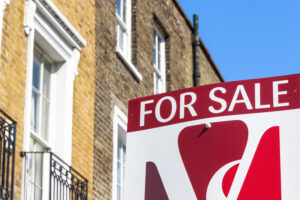
House prices rose for the twelfth month in a row in June, defying expectations of a slowdown.
Strong demand and a shortage of homes for sale pushed average prices up by 1.8 per cent over the month, the biggest rise since early 2007. Annual growth of 13 per cent was the highest since late 2004.
The average price of a property is now £294,845, according to figures from the mortgage lender Halifax. Prices have risen by 6.8 per cent, or £18,849, so far this year.
Business briefingIn-depth analysis and comment on the latest financial and economic news from our award-winning Business teams.One-click sign up.
Russell Galley, Halifax managing director, said: “The UK housing market defied any expectations of a slowdown. The supply-demand imbalance continues to be the reason house prices are rising so sharply.”
Demand is strong, although activity levels have slowed to be in line with pre-Covid averages, and the stock of properties for sale was low, the lender said.
In Scotland, the average house price passed the £200,000 mark for the first time. Northern Ireland had the strongest annual house price growth, up 15.2 per cent to £187,833.
In England, the South West was the strongest region for annual house price growth. Prices rose 14.2 per cent to £308,128.
Wales also continued to record a strong rate of annual growth, with average house prices increasing by 14.3 per cent to £219,281.
Galley said: “Property prices so far appear to have been largely insulated from the cost of living squeeze. This is partly because, right now, the rise in the cost of living is being felt most by people on lower incomes, who are typically less active in buying and selling houses.
“In contrast, higher earners are likely to be able to use extra funds saved during the pandemic, with latest industry data showing that mortgage lending has increased by the highest amount since last September.”
The market continued to be skewed towards bigger properties. Lockdowns forced people to rethink how and where they wanted to live, many deciding that they would like more office and garden space. Average prices for detached houses have risen by 13.9 per cent compared with a rise of 7.6 per cent for flats.
Figures for June from Nationwide, a rival mortgage lender with its own house price index, indicated that the market was slowing. It reported a 0.3 per cent rise in average prices last month, the smallest monthly increase since last September.
Halifax expects the market to slow as households become more cautious as a result of the cost of living squeeze and higher interest rates. UK households are facing the biggest annual drop in disposable income since the 1950s.
Galley said: “While it may come later than previously anticipated, a slowing of house price growth should still be expected in the months ahead.”
Martin Beck, chief economic adviser to the EY Item Club, said: “Demand for properties is likely to decline as some affordability measures look increasingly stretched, with both house prices-to-income and mortgage-to-income ratios sitting at record levels. Mortgage rates are on the rise and the prospect of households seeing a fall in real incomes this year, as high inflation takes hold, means fewer people will be able to afford to borrow the necessary amount they need to buy at higher mortgage rates.
“A slowdown in house price inflation is far more likely than a crash.”
Read more:
Halifax says house prices defy fears of a slump with 12th monthly rise




